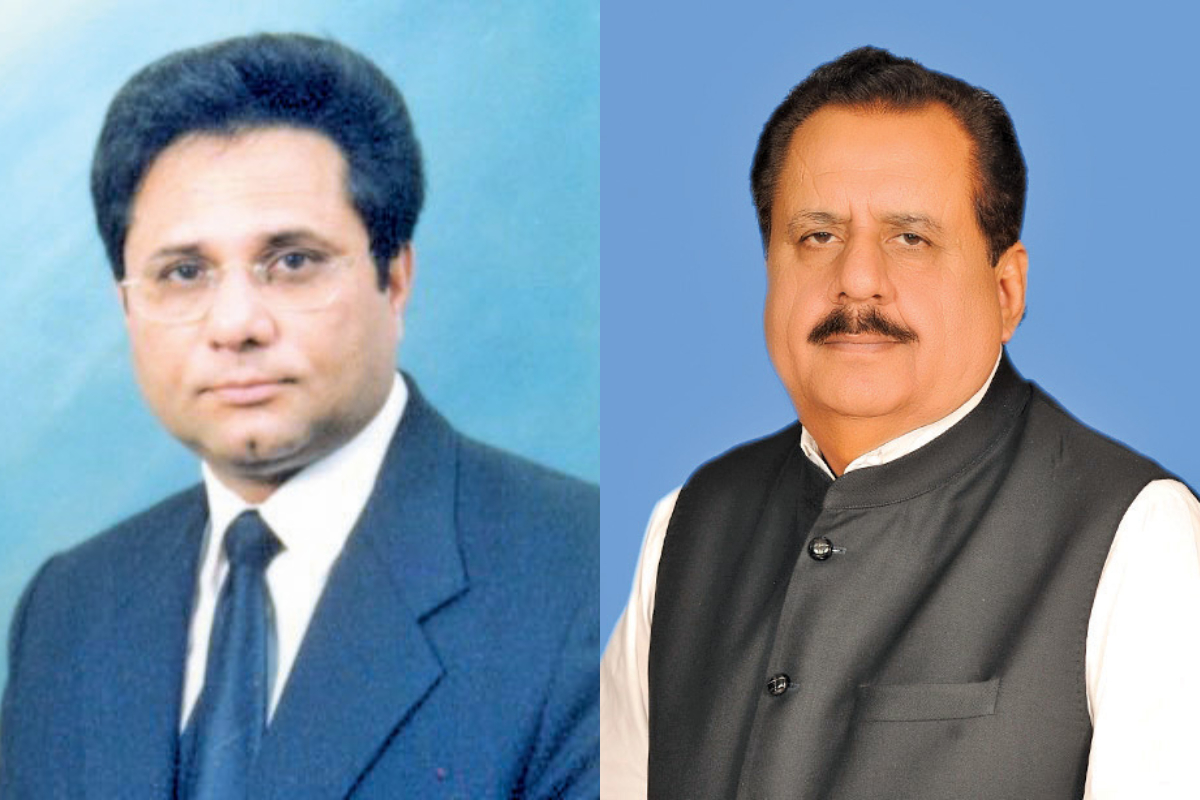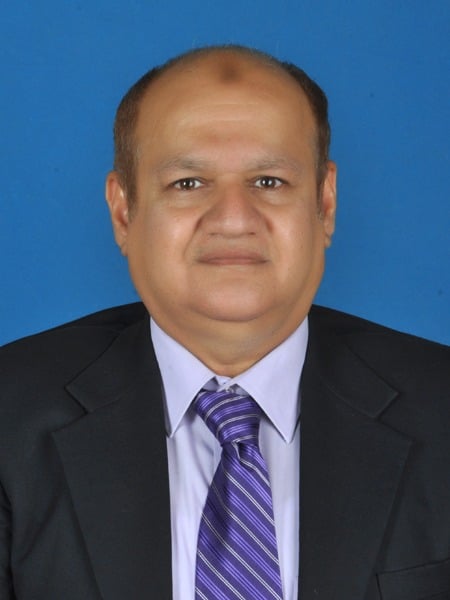
The Less Said, the Better
Pakistan a safe haven for speculators, hoarders and black marketers
Islamabad: Pakistan has become a safe haven for the speculators, hoarders and black marketers, owing to the political and economic mess. The massive rupee depreciation and last year’s floods have added salt to the wounds of the low income segment of the society.
Huge reliance on imports to meet the essential food and energy requirements has taken a toll not only on the economy but it has also substantially reduced the purchasing power of the common man.
The balance of payments crisis and high energy prices after the emergence of the Ukraine-Russia conflict and the floods catastrophe proved too much for Pakistan’s fragile economy.
Besides, the unavailability of the dollars, a delay in opening of the letters of credit (LCs) of essential items such as edible oil, vegetables, pulses, tea, etc, resulted in a major spike in food inflation, which reached 32.7 per cent in the first half (July-December) of FY22/23 in urban areas, whereas in the rural areas, it peaked to 38 per cent.
With the rising prices of wheat flour and chicken already hitting most household budgets, two more staples — ghee and cooking oil — are also going to be short in supply, as well as costlier ahead of the holy month of Ramazan if corrective measures are not taken immediately.
The Pakistan Vanaspati Manufacturers Association (PVMA) had already warned the government and the State Bank of Pakistan (SBP) that the producers are fast running out of palm oil, soyabean oil and sunflower; following the banks’ reluctance to open the letters of credit (LCs) and retiring documents for clearance of goods, despite the central bank’s allowance on December 27, 2022 to import these raw materials under essential items list.
The lifting of 358,000 tonnes of edible oil from the Customs bonded warehouses has been suspended, as the banks are turning down the requests to open LCs and the retirement of documents for clearance.
As a result, the default in retirement of LCs in favour of the foreign suppliers is attracting late payment surcharges and demurrage charges, while the rupee continues to depreciate against the dollar, making imports costlier.
The PVMA warned that the palm oil rate had already gone up to Rs14,000/tonne from Rs13,000. This has translated into an increase of Rs26/kg/litre in the prices of ghee and cooking oil.
As 358,000 tonnes of raw materials are awaiting clearance, around 175,000 tonnes loaded in around 10 vessels are at the outer anchorage of Karachi and Bin Qasim ports.
In case the issue of LCs retirement lingers on, the consumers would face another price hike of Rs15 to Rs20/kg/litre. The palm oil, sunflower and soyabean oil takes at least 60 days to reach Pakistan from foreign destinations.
The association called upon the authorities concerned to resolve the issue immediately to avert a ghee and oil crisis in Ramazan, which may start in the third week of March. Usually, the demand for oil and ghee surges 20 to 25 per cent in the holy month of Ramazan.
The shortage is not limited to imported food items. The common man is perturbed over the 20 per cent increase in wheat flour and 30 per cent in chicken prices.

Federal Minister for National Food Security and Research Tariq Bashir Cheema claimed that there is no shortage of wheat and flour anywhere in the country.
“We have sufficient wheat stocks and the government has also asked the provinces about their wheat requirements,” he told newsmen.
“We have to import 2.6 million tonnes of wheat from Russia, of which we have received 1.3 million tonnes,” he said, adding that after the decision of the review committee, the government has decided to import 2.6 million tonnes of wheat this year.
The government had stored 1.8 tonnes of wheat in the strategic reserves last year, which will contain 1.5 million this year. Accusing the provinces, he said, Punjab is not releasing wheat, despite getting wheat as per the requirements.
Cheema termed the wheat shortage and a hike in prices unnecessary and said the government is ready to face all kinds of challenges. After the 18th Amendment, the agricultural commodities, including wheat, are the issue of provincial governments, he said, adding that all the provinces are getting their wheat quota.
The people should stop eating chicken, as it is harmful to human health, as the poultry feed contains genetically modified organism (GMO) oilseeds, he said, adding that the GMO soyabeans are toxic, causing diseases like cancer.
Fareed Qureshi, chairman of the Karachi Grocers Retailers Group, said that in the last one year, the prices of imported items increased 30 to 50 per cent, resulting in an increase in the locally-produced goods price.
“The increase in the prices of imported goods is understandable but I failed to understand that how come the price of 1.5 litres of mineral water bottle has gone up by Rs30 to Rs80, half roll pack of biscuits by Rs20 to Rs50 and the small pack of potato chips become costlier by Rs10 to Rs30,” he said.
According to Qureshi, the milk shops have increased the prices to Rs190/litre from Rs130/litre and the tetra pack milk prices have jumped up to Rs250 from Rs140 in the same period without any justification.
“No multinational or local company mention price on the packaging and, unfortunately, the people also do not report this issue to the authorities concerned.”
After the increase in the flour prices, the local administration, instead of taking action against the mills, which are hoarding the wheat stocks, forced the shop-owners to sell flour at Rs98/kg, which the retailers purchased over Rs100.
“So far, 35 shops have been sealed on refusing to sell flour at the price fixed by the deputy commissioners of the city. Now, no retailer is selling flour anymore and, as a result, the people have been forced to wait in long queues at the utility stores and Sasta Atta Bazaars,” he added.
Despite a huge decline in the international palm oil market, the edible oil manufacturers have not passed on the benefit to the consumers.
“Before the ongoing LCs crisis, the palm oil price was around Rs150/litre but the local manufacturers were selling it at Rs380/litre. After the LCs issue, the local manufacturers have again increased the prices to Rs500/litre on the plea that the rupee depreciation and increased demurrage charges have jacked up their cost.
Experts believed that the governance structure of Pakistan has several flaws and weaknesses, which make it easier for the businesses to form cartels and also incentivise the black marketers to exploit the needs of the masses, especially the vulnerable groups.
To counter cartelisation and deceptive market practices or to stop from abusing a dominant position in the market, the Competition Commission of Pakistan has been operating over a decade.
So far, the CCP has fined 31 sectors of the economy with over Rs74 billion. Prominent among those were the sugar industry with the penalty of Rs43.5 billion; telecom, Rs11.58 billion; fertiliser, Rs8.7 billion; cement, Rs6.4 billion; and electronics, Rs1.10 billion for participating in anti-competitive agreements and resorting to deceptive marketing practices.
Despite having legal mandate, the amount of penalties collected by the commission is merely a few million rupees because the majority of the sectors penalised filed petitions in different courts of the country.
A senior CCP official said that everyone knows how strong cartels are.
“The wealth they accumulated allows them to hire the top notch lawyers who not only know how to exploit the weaknesses of the prosecution system but also are very well-connected in the judiciary to linger these cases to benefit their clients.”
“The CCP legal team did not have the capacity or resources to counter them,” the official remarked.
During the previous Pakistan Tehreek-e-Insaf (PTI) government, serious efforts were made through backdoor channels to convince the judiciary to ensure speedy trials of pending litigations. However, after the change in the regime, so far no progress has been made on this issue.

Senior economist Dr Ikramul Haq said that the kind of political and economic chaos the country is confronted with, it is not surprising that the cartels, price manipulators’ and speculators are the major beneficiary of the situation.
“Everybody saw that recently the banks made huge profits by exploiting the limited availability of the dollars and charged huge premiums from the importers who were desperate to open their LCs,” he lamented.
According to Dr Haq, whether it is politicians, establishment or the bureaucrats, all have stakes in these cartels. Since this is an election year, the members of the ruling party or the opposition want to make as much money as they can, so they could spend lavishly in the election campaigns to lure voters.
He admitted the fact that curbing price speculation is the responsibility of the provinces, especially district governments but they remain unsuccessful in curbing it.
“The provinces are getting huge funds from the divisible pool of the National Finance Commission (NFC) Award, still they are least interested in improving their governance or passing the resources to the district level so that the common man would benefit from it,” he added.
Catch all the Economic Pulse News, Breaking News Event and Latest News Updates on The BOL News
Download The BOL News App to get the Daily News Update & Live News.








 Read the complete story text.
Read the complete story text. Listen to audio of the story.
Listen to audio of the story.